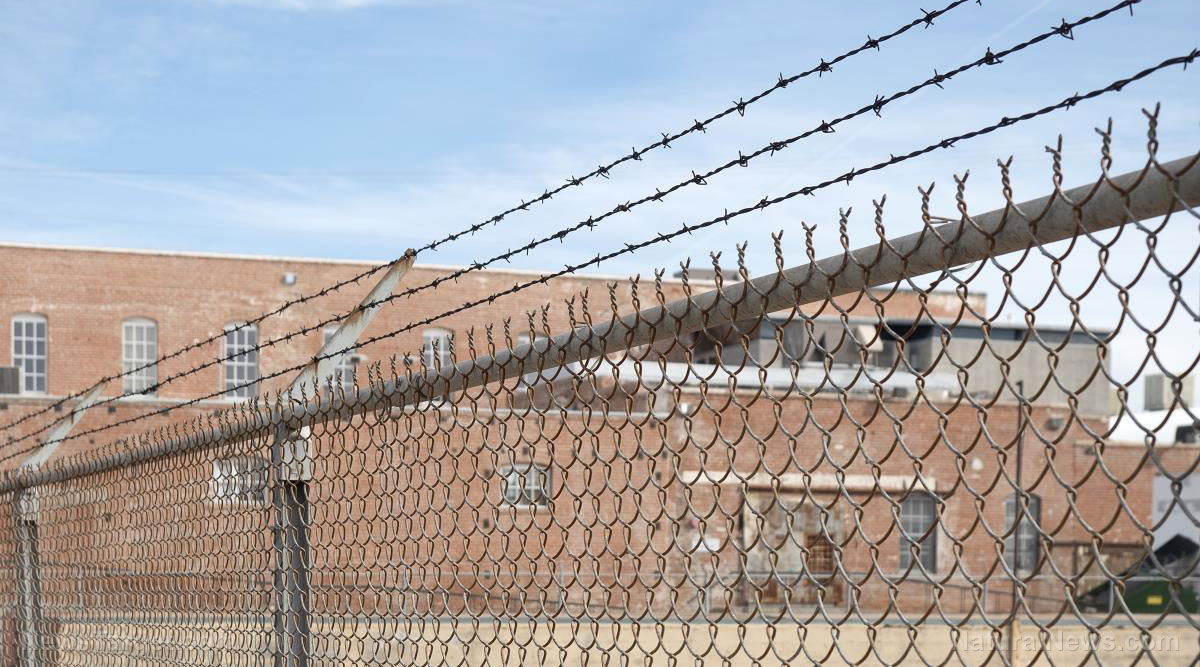Sen. Durbin proposes bill to reduce credit card swipe fees – critics warn bill would increase credit card fraud
10/23/2023 / By Arsenio Toledo

Democratic Sen. Dick Durbin of Illinois has once again filed a bill in the Senate that could limit the ability of banks and credit unions to implement anti-fraud technologies to protect users of credit cards.
The Credit Card Competition (CCA) Act of 2023 claims to want to lower interchange fees. Also known as “swipe fees,” these are the small – ranging from one to three percent per transaction – fees merchants and business owners pay every time their customers use credit cards to purchase products and services.
These fees are generally non-negotiable and go directly to major credit card networks. Consumers mostly do not see these fees on their receipts. Merchants voluntarily take a loss on their revenue or pass it along to consumers as surcharges or price increases. (Related: US credit card debt rises to historic high of $1.03 trillion.)
The CCA would lower swipe fees and allegedly provide additional savings both for business owners who front the bill and for consumers who spend more due to the surcharges or price increases caused by swipe fees.
“Credit card swipe fees inflate the prices that consumers pay for everyday purchases like groceries and gas,” said Durbin in a press release. “It’s time to inject real competition into the credit card network market.”
Costs for consumers, risks of fraud increase with CCA Act
Critics of the CCA Act warn that the bill would not provide consumers and businesses with any significant savings. They add that the bill would increase security risks and could significantly negatively alter, if not completely eliminate, credit card rewards programs.
According to the Electronic Payments Coalition, an industry group of credit unions, small banks and payment card networks, getting rid of swipe fees gets rid of the ability of credit card networks to provide additional security guarantees and perks funded by those swipe fees.
“It’ll be cheaper,” the group admitted. “But [it will] also lead to an increase in fraud and a headache for all involved.”
An increase in credit card fraud “won’t be the only cost,” warned the group. The law will also force every single financial institution in the United States that issues credit cards to re-issue them “so that there is a second payment network connected to the credit card.”
“Can you imagine the logistical nightmare that would entail?” warned the group. “Small banks and local credit unions are already strained in some towns. The employee hours and money required to implement something of this scale will take away resources that could be better spent on providing banking services that small businesses and consumers rely on.”
“This legislation would also unnecessarily increase the annual fees associated with participating in these programs or otherwise harm our ability to reward our most enthusiastic customers’ loyalty,” wrote the industry group Airlines for America. “We are also concerned that the legislation will reward networks who invest the least in technological innovation and fraud protection – putting our valued customers’ financial security at risk.”
Meanwhile, the American Bankers Association warned that the bill is “regressive” and it takes cash and profits away from consumers, community financial institutions and small businesses “and gives to the most profitable global retailers and biggest grocery chains” who they argue will be the main beneficiaries of getting rid of swipe fees.
Watch this video from John Williams explaining the effects of massively increasing credit card debt.
This video is from the Vinman13 channel on Brighteon.com.
More related stories:
Zoom updates terms of service: Privacy experts warn about potential DATA THEFT for AI training.
Cyber security threats: 10 Tips for safe internet browsing.
PayPal hack exposes names, social security numbers of 35,000 customers.
Details of over 1.2M credit and debit cards LEAKED onto BidenCash website.
Sources include:
Submit a correction >>
Tagged Under:
big government, Bubble, cancel democrat, computing, conspiracy, credit card rewards, credit cards, cyber war, data breach, data security, deception, Dick Durbin, finance riot, financial security, fraud protection, Glitch, information technology, money supply, risk, swipe fees
This article may contain statements that reflect the opinion of the author
RECENT NEWS & ARTICLES
COPYRIGHT © 2017 RISK NEWS




















